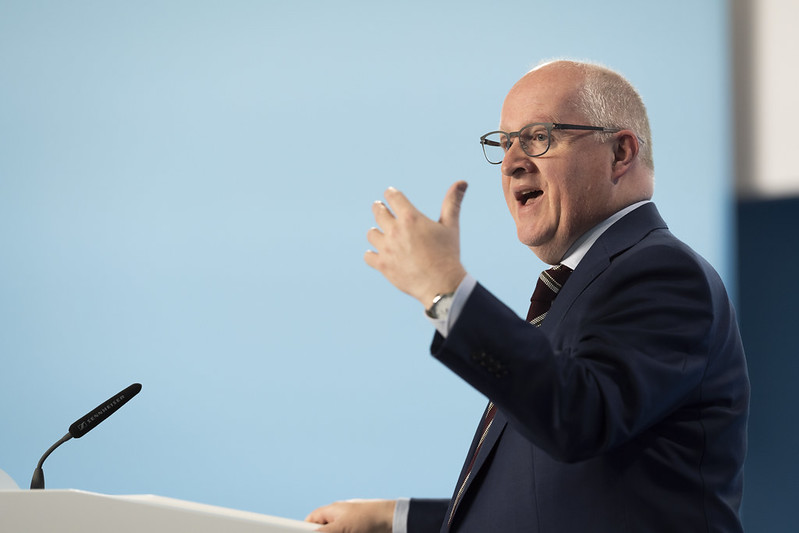ECB’s Lane: Should Not ‘Remain Too Restrictive for Too Long’ or Inflation Would Undershoot
25 November 2024

By Marta Vilar – MADRID (Econostream) – European Central Bank Executive Board member Philip Lane said on Monday that the ECB should not maintain a restrictive monetary policy stance for too long lest it impact inflation and economic growth.
In an interview with French daily Les Echos, Lane said, ‘Monetary policy should not remain too restrictive for too long. Otherwise, the economy will not grow sufficiently and inflation will, I believe, fall below the target.’
As a considerable part of the final movement of inflation back to the 2% target could be delivered in 2025, Lane said that an equilibrium between inflation and growth could be reached by then and thus, monetary policy would not need to be restrictive anymore.
‘The concept of the neutral rate is interesting, but I would question whether next year the world will be neutral, in the sense of there being no major shocks’, he said. ‘Our focus is on bringing inflation back down to our 2% target on a sustainable basis.’
Declining energy prices and high services inflation needed to rebalance in 2025, according to Lane.
‘Over the course of next year we need to see a kind of rebalancing: a decline in services inflation that allows us to reach the target, even if there’s some upward pressure on the prices for energy, food and goods’, he said.
There was still some way to go to consider inflation to be sustainably on target, he added.
Consumption could grow more firmly in 2025 and 2026 as the construction sector should rebound as interest rates fall, according to Lane.
‘But to turn a modest recovery into a really strong economy will require policy reforms for the integration of the European economy, as Mario Draghi argues in his report’, he stated.
Asked about the effect of a potential rise in tariffs by the new Trump administration on Europe’s economy and inflation, Lane said that though the impact could be bidirectional, ‘the net effect of protectionism on the global economy is clearly negative.’
The severity of the issue would depend on the speed at which protectionist measures were applied and how many sectors were affected, Lane said.
‘If the increase in tariffs is rapid and universal, European firms will have little time to prepare and the risk of a big disruption will be very high’, he indicated.
However, if its implementation was slow and only affected some goods, the outcome would be highly uncertain, he said.
‘That uncertainty could inhibit investment in Europe and may also make consumers reluctant to spend’, he added.
Were the world to become more protectionist, that would negatively impact the European economy and would probably lower inflation pressures, according to Lane.
‘So we will need to strike a balance in our assessment between external pressure on inflation – which may be stronger from the United States but weaker from China – and possibly less domestic pressure on inflation’, he said.
Related articles:
- ECB’s Lane: Our Rate Path Has Brought ‘Substantial and Timely Progress in Disinflation’
- ECB’s Lane: ‘Let’s Not Exaggerate the Impact of the Fed on the Euro Area’ After US Election
- ECB’s Lane: Disinflation ‘Well on Track’, Ination to Return to Target in Course of 2025
